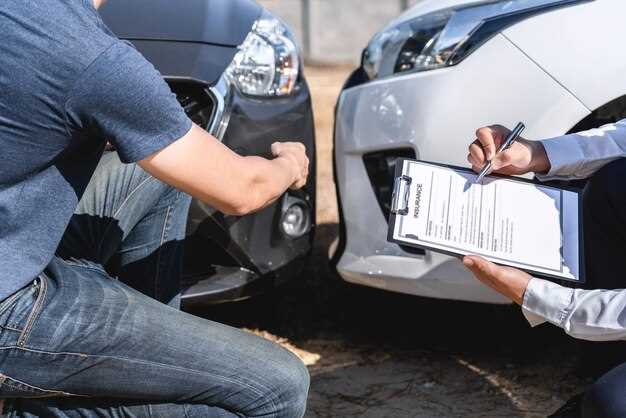
When it comes to insuring a salvage car, there are several important factors to consider. A salvage vehicle, typically one that has been declared a total loss by an insurance company, presents unique challenges when it comes to obtaining insurance. Understanding the specifics surrounding policy options for these vehicles can help owners make informed decisions that protect their investments and ensure legal compliance.
First and foremost, it is essential to recognize that traditional insurance policies may not be applicable for salvage cars. Many insurance companies have specific guidelines that determine whether they will insure a vehicle with a salvage title. It is crucial to carefully review the terms and conditions of any policy, as not all insurers will cover vehicles that have been rebuilt or repaired after being declared a total loss.
Additionally, the cost of insuring a salvage car can vary greatly depending on its condition, age, and the extent of the repairs that have been made. Insurers may evaluate the vehicle’s market value differently, often leading to higher premiums or limited coverage options. Prospective policyholders should actively seek out specialized insurers or those with experience in handling salvage titles to ensure they receive adequate coverage that reflects the unique circumstances of their vehicle.
Insuring a Salvage Car: What You Need to Know

When considering the purchase of a salvage car, it is crucial to understand the intricacies of insuring such a vehicle. A salvage car is one that has been declared a total loss by an insurance company due to damage or theft. Securing a policy for this type of vehicle can be challenging, but it is not impossible.
First, it’s essential to recognize that many traditional insurers may be hesitant to provide coverage for salvage cars. This is largely due to the increased risk associated with vehicles that have previously suffered significant damage. As a result, those looking to insure a salvage car should seek out specialized insurance providers or companies that specifically cater to high-risk drivers and salvage vehicles.
When obtaining a policy, be prepared to provide detailed information about the vehicle’s history and current condition. This includes documentation of repairs and inspections to ensure the car is roadworthy. Furthermore, having a clear understanding of the car’s market value post-repair is vital, as it will influence the coverage options available to you.
Another important factor to consider is the type of coverage you wish to obtain. While liability insurance is often mandatory, you may also want to explore comprehensive and collision coverage options. However, keep in mind that due to the vehicle’s salvage status, these additional coverages may come at a higher premium or may even be unavailable.
In summary, insuring a salvage car requires careful consideration and research. By approaching the right insurance providers and understanding the necessary documentation and coverage options, you can navigate the process more efficiently and ensure that your salvage vehicle is adequately protected.
Understanding Salvage Vehicle Classification and Its Impact on Insurance

Salvage vehicles are automobiles that have been declared a total loss by an insurance company due to severe damage from accidents, floods, or other events. This classification significantly influences both the value of the vehicle and the terms of insurance policies. When a car is labeled as salvage, it typically means that the cost of repairs exceeds a substantial percentage of its fair market value.
Insurance companies rely on salvage titles to assess the risk associated with insuring a vehicle. A salvage car often comes with a lower market value, which impacts the type of policy that can be obtained. Many insurers may offer only limited coverage options for these vehicles, such as liability coverage, while comprehensive or collision coverage may be restricted or unavailable. This variance exists because companies consider salvage cars to be higher risk.
It is essential for owners of salvage vehicles to disclose their vehicle’s status when seeking insurance. Failing to do so can lead to claim denials or policy cancellations. Additionally, the presence of a salvage title can affect premium rates, as insurers may charge higher premiums to account for increased risk factors associated with these vehicles.
Understanding the implications of a salvage classification helps vehicle owners navigate the insurance landscape effectively. It is crucial to shop around and compare policies from different insurers, as coverage options and pricing can vary significantly. Being well-informed about how salvage titles influence insurance will aid car owners in making wise decisions to protect their investment.
Finding the Right Salvage Car Insurance Provider for Your Needs
When it comes to insuring a salvage vehicle, selecting the appropriate insurance provider is crucial for your peace of mind and financial protection. Here are several factors to consider when searching for the right salvage car insurance provider:
- Research the Company’s Reputation: Look for reviews and ratings of potential insurance providers. Reputable companies should have a history of positive customer experiences, particularly in handling claims for salvage cars.
- Coverage Options: Ensure the provider offers comprehensive policy options specifically tailored to salvage vehicles. Common types of coverage include liability, collision, and comprehensive insurance, which protects against theft and natural disasters.
- Understand the Fine Print: Carefully read the policy documents. Pay attention to any exclusions or limitations that may apply to salvage cars. Some providers may not cover specific types of damage or may impose higher deductibles.
- Get Multiple Quotes: Don’t settle for the first quote you receive. Gather estimates from several providers to compare rates. This will help you identify a policy that fits your budget while still offering adequate coverage.
- Ask About Discounts: Some insurance companies offer discounts for specific situations, such as bundling policies or having a good driving record. Inquire about any potential savings that could make your policy more affordable.
- Customer Service: Evaluate the provider’s customer service. A responsive and helpful customer support team is essential, especially when filing claims or addressing policy questions.
By thoroughly researching and considering these factors, you can find a reliable salvage car insurance provider that meets your needs and ensures your investment is protected.
Key Factors to Consider in Your Salvage Car Insurance Policy
When insuring a salvage car, several critical factors come into play that can significantly influence your policy. Understanding these elements can help you choose the right coverage and ensure you are adequately protected.
1. Vehicle Condition: The overall condition of your salvage car is paramount. Insurance companies assess the extent of damage and repair history. A car that has undergone extensive repairs may be more insurable than one with significant structural issues.
2. State Regulations: Different states have varying laws regarding salvage vehicles. Some may require a salvage title before coverage can be issued. Familiarize yourself with your state’s regulations to ensure compliance and avoid potential issues with your policy.
3. Coverage Types: Salvage cars can limit the types of coverage available. Comprehensive and collision coverage might be more challenging to obtain, and liability coverage is often the minimum required. Understanding what options are available is crucial in securing the right insurance for your salvage vehicle.
4. Insurer Experience: Not all insurance companies are equally experienced in handling salvage vehicles. Look for insurers who specialize in this market, as they will likely provide better terms and may understand the specific challenges associated with insuring a salvage car.
5. Value of the Car: The market value of your salvage car will significantly impact your insurance premiums. Be prepared for a lower valuation than a standard vehicle due to its salvage status. This valuation process can also affect the payout in case of a claim.
6. Repair Costs: Consider the potential costs associated with repairing your salvage vehicle. Insurance policies may factor in these costs, and knowing them beforehand can aid in selecting adequate coverage. Some policies may also include provisions for future repairs, which can be beneficial.
7. Claim Process: In the event of an accident, understanding your insurance company’s claim process is essential. Research how claims related to salvage cars are handled and ensure you are comfortable with the procedures before choosing a policy.
By considering these factors, you can make informed decisions when acquiring insurance for your salvage car, ultimately protecting your investment and ensuring compliance with legal requirements.
